Photo: Courtesy of Megan Thee Stallion
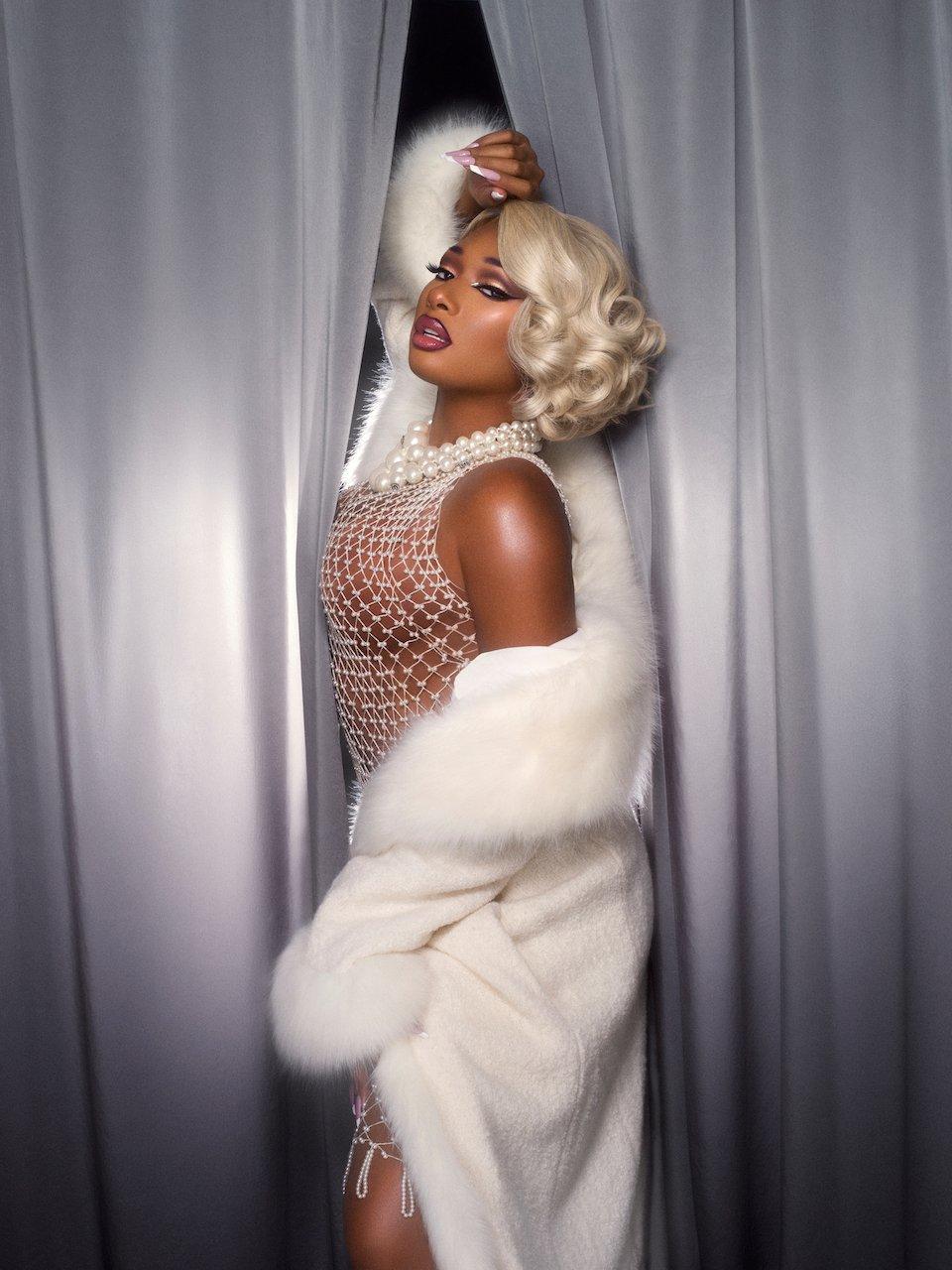
Megan Thee Stallion
news
The Rise And Rise Of Megan Thee Stallion: Juicy J, Scott Storch, LilJuMadeDaBeat & More On The Houston Rapper's Emergence
GRAMMY.com spoke to the producers and creatives behind Megan Thee Stallion's sound about working with the GRAMMY-nominated rapper, what diehard Hotties would be surprised to learn about her, and why her influence goes beyond music
For Women's History Month 2021, GRAMMY.com is celebrating some of the women artists nominated at the 2021 GRAMMY Awards show. Today, we honor Megan Thee Stallion, who's currently nominated for four GRAMMY Awards.
From her no-holds-barred mixtapes to making inescapable chart-topping hits, few artists in recent history have had a more stratospheric rise than Megan Thee Stallion. The Houston rapper, born Megan Jovon Ruth Pete, began writing raps as a teenager but started getting attention when she posted videos of herself freestyling on Instagram while a student at Prairie View A&M University. Even in those early clips, one of which saw her battling male opponents in a cipher, Thee Stallion (a nickname given to her because of her towering height) displayed the poise and fiercely unapologetic raps that would soon make her a star.
A handful of critically-acclaimed projects, including 2018's Tina Snow EP and 2019's Fever mixtape, showcased the rapper's ability to create different personas and challenge gender stereotypes in the genre and society. In August 2019, she released the single "Hot Girl Summer" featuring Nicki Minaj and Ty Dolla $ign (inspired by the body-positive catchphrase popularized on social media by her and her fans known as "Hotties"), scoring her first No. 1 on Billboard's Rhythmic AirPlay Chart. Despite personal tragedy—both her mom (a former rapper and her first manager) and grandmother passed away in 2019—the 24-year-old was well on her way to being a household name. She guested on songs by artists including Chance the Rapper, Gucci Mane, and Khalid, and signed a management deal with Jay-Z's Roc Nation.
<style>.embed-container { position: relative; padding-bottom: 56.25%; height: 0; overflow: hidden; max-width: 100%; } .embed-container iframe, .embed-container object, .embed-container embed { position: absolute; top: 0; left: 0; width: 100%; height: 100%; }</style><div class='embed-container'><iframe src='https://www.youtube.com/embed/lEIqjoO0-Bs' frameborder='0' allowfullscreen></iframe></div>
Last year was a major one for Pete. The rapper kicked off 2020 with her collaboration alongside singer Normani, "Diamonds," which appeared on the superhero blockbuster Birds of Prey soundtrack. She earned her first No. 1 on the U.S. Billboard Hot 100 chart for the surprise Beyoncé-assisted "Savage" remix (proceeds from the song went to COVID-19 relief efforts in Houston), a full-circle moment for Pete, who has named the Houston singer as one of her biggest inspirations. A few months later she collaborated with another powerhouse artist, Cardi B, on her sex-positive, record-breaking anthem "WAP." If all that wasn't enough, she was also named one of TIME Magazine's 100 most influential people. Pete ended the year by releasing her highly-anticipated debut album, Good News, which featured City Girls, SZA, Big Sean, 2 Chainz, and more.
With four nominations at the 2021 GRAMMY Awards show, including Best New Artist, GRAMMY.com spoke to Scott Storch, LilJuMadeDaBeat, Helluva, Juicy J, and OG Ron C about working with the rapper, what diehard Hotties would be surprised to learn about her, and why her influence goes beyond music.
LilJuMadeDaBeat: "Megan is literally one of the most genuine people I've ever met in my life."
LilJuMadeDaBeat, born Julian Mason, has had a front-row seat to Megan Thee Stallion's ascent. In 2018, when the rapper signed to Houston independent label 1501 Entertainment (started by former baseball player Carl Crawford), the Dallas-born producer got the call to start working with her. His productions can be heard on Tina Snow and Fever. "We just locked in and started going crazy," he explains to GRAMMY.com. "Some of those early beats we made literally sitting at my kitchen table in Houston."
One of those beats became "Big Ole Freak," a Tina Snow highlight which sees Pete boasting about her sexual prowess over a bass-heavy beat, and her first song to chart on the Billboard Hot 100 chart. The pair bonded instantly over their love of '90s/'00s Texas rap groups like UGK (Bun B and UGK) and Three 6 Mafia, whose music was a major influence on their work together.
<style>.embed-container { position: relative; padding-bottom: 56.25%; height: 0; overflow: hidden; max-width: 100%; } .embed-container iframe, .embed-container object, .embed-container embed { position: absolute; top: 0; left: 0; width: 100%; height: 100%; }</style><div class='embed-container'><iframe src='https://www.youtube.com/embed/oBYf6gpVvRA' frameborder='0' allowfullscreen></iframe></div>
"Anybody that knows me could tell you Pimp C is my favorite rapper. When I met Megan, he just so happened to be her favorite rapper too," says Mason. He even ended up sampling "Sippin On Some Syrup," Three 6 Mafia's 2000 collaboration with UGK and Project Pat, on "Big Drank," which appeared on Pete's 2019 Fever (the cover depicting the rapper as a 70s Blaxploitation heroine). Fittingly, Three 6 Mafia co-founder Juicy J executive produced the project and appears on the track "Simon Says."
Mason also produced "Cash Shit," a Fever standout featuring DaBaby. "She called me and was like 'I want a beat with no melody' and I was like 'Okay cool,'" he says. It would be the first of many Megan Thee Stallion songs to achieve success on TikTok, with users choreographing elaborate dance routines. (When Ohio teenager Keara Wilson posted a video of her dancing to "Savage" on March 10, 2020, it quickly went viral, with celebrities including Hailey Bieber, Jessica Alba, and Pete herself doing the challenge on their accounts.) The rapper ended 2020 as TikTok's most listened-to artist.
From the beginning, the rapper harnessed social media to both build her fanbase and control her own narrative, despite the detractors that come with the territory. "I hate that a lot of people try to paint her as a bad guy on social media," says Mason. "Megan is literally one of the most genuine people I've ever met in my life, she'll do anything for me, and I'll do anything for her."
Helluva: "[Working with her] just gave me confidence to know an artist of that status could use my beats."
Detroit producer Helluva was surprised Pete was a fan of his beats before they started working together. "I didn't even know people outside of Detroit even heard my beats like that," he tells GRAMMY.com.
Previously known for his work with Detroit rapper Tee Grizzly, whose song "No Effort" directly inspired Pete's 2018 track "Freak Nasty," Helluva ended up working on her 2020 Suga EP and Good News. Originally intended to be released as her debut album on May 2—her late mother's birthday—she ended up dropping Suga at the beginning of March 2020 amidst label contract disputes (A judge ended up granting her permission to put out the project).
<style>.embed-container { position: relative; padding-bottom: 56.25%; height: 0; overflow: hidden; max-width: 100%; } .embed-container iframe, .embed-container object, .embed-container embed { position: absolute; top: 0; left: 0; width: 100%; height: 100%; }</style><div class='embed-container'><iframe src='https://www.youtube.com/embed/BF8TE5qsOCs' frameborder='0' allowfullscreen></iframe></div>
Besides collaborations with Oakland R&B singer Kehlani and Atlanta rapper Gunna, the EP also featured production from coast-to-coast GRAMMY-winning hitmakers including The Neptunes, Timbaland, and J. White Did It. Helluva contributed two songs, "Ain't Equal" and the Tupac Shakur-sampling "B.I.T.C.H.," the latter of which Pete performed on "The Tonight Show." "Once she was giving me a shot at it, I wasn't going to miss my shot," he says. "[Working with her] just gave me confidence to know an artist of that status could use my beats."
Suga spawned the rapper's biggest hit to date, the infectious, J. White-produced "classy, bougie, ratchet" anthem "Savage," and its accompanying internet-breaking remix with Beyoncé, who she met at a New Year's Eve party. The remix featuring co-writing from The-Dream and Starrah quickly reached number one.
Juicy J: "She's showing women empowerment. We make music every day that's good, but when you can actually give a message too? That's dope."
When producer and rapper Juicy J first heard Pete rap he knew she was going to be huge. "I was like 'Man I ain't never heard no female rap like this,'" he tells GRAMMY.com. "She writes her own stuff, she's in the studio telling the engineer how she wants her voice to sound, she's hands-on with everything." He'd later co-produce "Hot Girl Summer" and multiple songs off Good News, and Pete would guest on his 2020 album, The Hustle Continues.
Juicy J was also impressed with the rapper's "Saturday Night Live" debut. On Oct. 3, 2020, she took the opportunity to make a statement after months of protests and racial reckoning. She performed in front of a screen displaying the words "Protect Black Women," along with quotes from Malcolm X and activist Tamika Mallory calling out Kentucky Attorney General Daniel Cameron over his handling of Breonna Taylor's death at the hands of three Louisville police officers.
<style>.embed-container { position: relative; padding-bottom: 56.25%; height: 0; overflow: hidden; max-width: 100%; } .embed-container iframe, .embed-container object, .embed-container embed { position: absolute; top: 0; left: 0; width: 100%; height: 100%; }</style><div class='embed-container'><iframe src='https://www.youtube.com/embed/CTpilDQXYr0' frameborder='0' allowfullscreen></iframe></div>
"We need to protect our Black women and love our Black women, 'cause at the end of the day, we need our Black women," she said during the performance. "We need to protect our Black men and stand up for our Black men, 'cause at the end of the day, we're tired of seeing hashtags about Black men." A few days later, she wrote an op-ed for the New York Times titled "Why I Speak Up For Black Women" about her experiences as a Black woman in hip-hop. The piece also touched on her political activism.
"She's showing women empowerment," says Juicy J. "We make music every day that's good, but when you can actually give a message too? That's dope."
Scott Storch: "She is very down to earth and that's what gives you longevity in the game."
After all her success, expectations were sky-high for Good News, but neither Pete nor her collaborators were fazed by the pressure. Besides long-time producers LilJuMadeDaBeat, Juicy J, and Helluva, she also recruited veteran beatmakers including Cool & Dre, Mustard, and eight-time GRAMMY winner Scott Storch, who helped her pay homage to the music that she grew up listening to on the album.
Opener "Shots Fired," in which the rapper scathingly addresses the July 2020 incident where she was shot in the foot twice, samples Notorious B.I.G.'s Tupac-dissing "Who Shot Ya?" and "Girls in the Hood" flips Eazy-E's 1987 classic "Boyz-in-the-Hood."
<style>.embed-container { position: relative; padding-bottom: 56.25%; height: 0; overflow: hidden; max-width: 100%; } .embed-container iframe, .embed-container object, .embed-container embed { position: absolute; top: 0; left: 0; width: 100%; height: 100%; }</style><div class='embed-container'><iframe src='https://www.youtube.com/embed/l3Cj7Esqr0c' frameborder='0' allowfullscreen></iframe></div>
"I was playing with some ideas and melodies and always loved that classic sound of Eazy-E," Storch shares with GRAMMY.com. "I reworked the original sample, replayed all the instruments, and had [co-producer] Illa put some drums behind it. As soon as it was done we thought this could be something special."
Unsurprisingly, Good News topped the U.S. and international charts and made year-end lists including Rolling Stone, Pitchfork, and the Los Angeles Times. The "Savage" remix picked up three GRAMMY nominations (Record of the Year, Best Rap Performance, Best Rap Song), and Pete was nominated for Best New Artist.
Of the rapper's potential, Storch adds, "She is very down to earth and that's what gives you longevity in the game. She isn't impressed by all the Hollywood smoke and mirrors and cares so much for her fans."
OG Ron C: "Now the labels are calling asking 'Who's the next hot artist in Texas?'"
Pete's achievements have paved the way for the next generation of Lone Star State artists. Houston DJ and Chopstars collective founder OG Ron C, who has remixed several of her projects including Suga, has seen firsthand the new attention she's brought to the city.
"The fans love her. I've been breaking artists around my city for a long time from Slim Thug to Mike Jones, Paul Wall, Lil Flip, the list goes on," he tells GRAMMY.com. "It's always amazing for me to see because I know what Texas artists fight through just to get a point where other people say 'Oh yeah man, we like you and we jamming you.'"
<style>.embed-container { position: relative; padding-bottom: 56.25%; height: 0; overflow: hidden; max-width: 100%; } .embed-container iframe, .embed-container object, .embed-container embed { position: absolute; top: 0; left: 0; width: 100%; height: 100%; }</style><div class='embed-container'><iframe src='https://www.youtube.com/embed/13Qj3ljQM0w' frameborder='0' allowfullscreen></iframe></div>
Ron C is now a general manager at 1501, and points out there's infrastructure and opportunities for Texas rappers and producers today to reach a national platform that didn't exist in the '80s and '90s. "We never had the luxury of being an entertainment hub, we didn't have the luxury of Lyor [Cohen] or Clive [Davis] or LA [Reid] walking around the city and just so happened to see somebody on their grind, or happen to hear somebody's music," he says. "Now the labels are calling asking 'Who's the next hot artist in Texas?'"
Inside The Visual World Of Beyoncé And Black Is King, Her "Love Letter" To Black Men
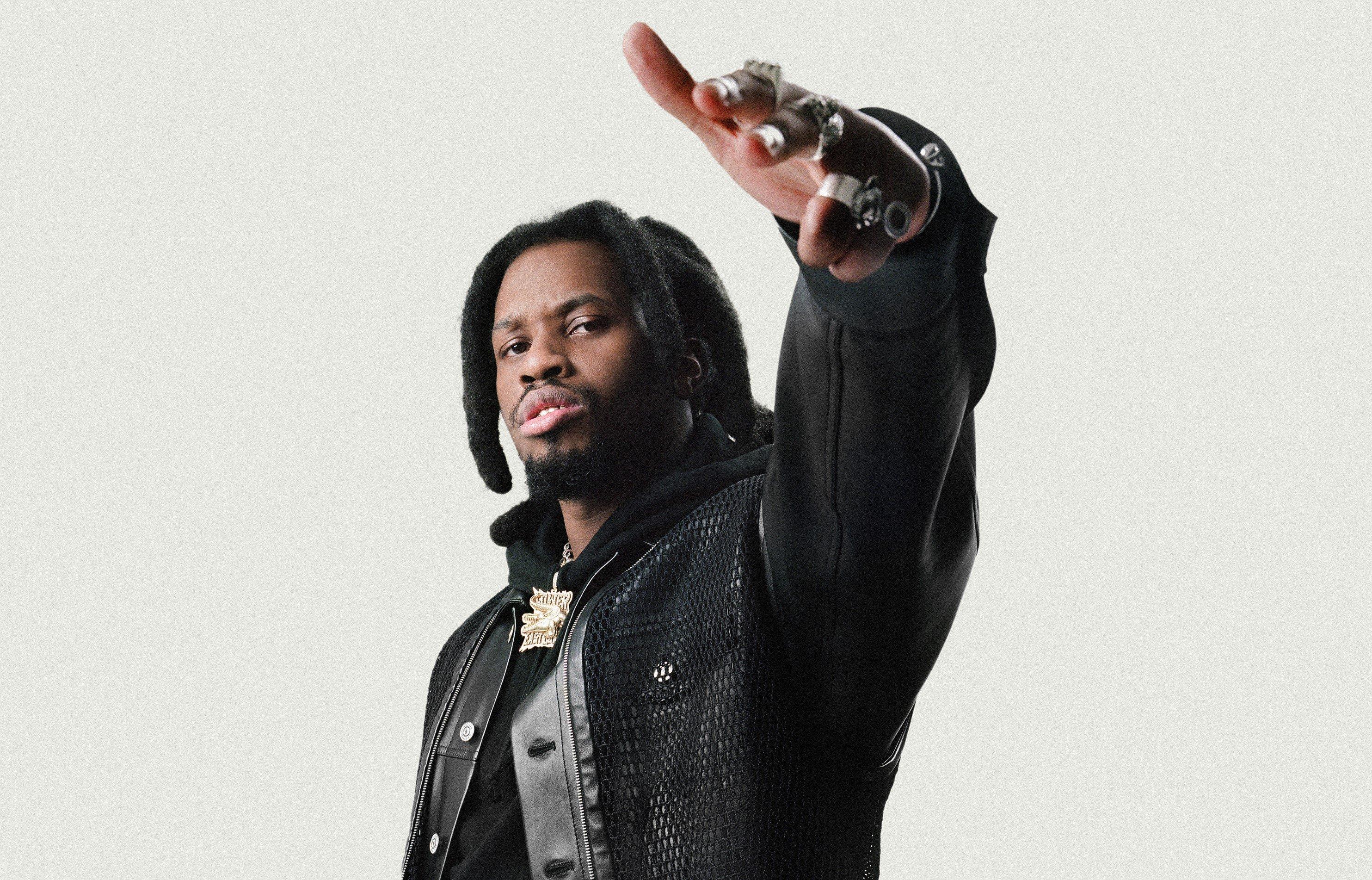
Photo: Giovanni Mourin
interview
Denzel Curry Returns To The Mischievous South: "I've Been Trying To Do This For The Longest"
Over a decade after he released 'King of the Mischievous South Vol. 1,' Denzel Curry is back with 'Vol. 2.' The Miami rapper details his love of Southern hip-hop, working on multiple projects, and the importance of staying real.
Denzel Curry isn’t typically one for repetition. His recent run of critically acclaimed projects have all contrasted in concept and musicality.
The Miami Gardens native has cascaded through boom-bap, synth-soaked trap metal, and cloud rap throughout his catalog. But on his upcoming project, King of the Mischievous South Vol. 2, Curry returns to the muddied, subwoofer-thudding soundscape that he captured on the first installment back in 2012.
Curry was just 16 when he released King of the Mischievous South Vol. 1 Underground Tape 1996]. "I was a kid, man," Curry tells GRAMMY.com. "I was just trying to emulate my favorite rappers at the time who really represented the South. That was pretty much what I was on at the time – the Soulja Slims, the No Limits, but mostly Three 6 Mafia. And then I just put Miami culture on top of that."
Curry first explored the rough-cut "phonk" of Southern acts like DJ Screw and Pimp C as a teenager. His first mixtape, King Remembered Underground Tape 1991-1995, caught the attention of then-rising rapper and producer SpaceGhostPurrp. He shared Curry’s project on his social media accounts, making him an official member of South Florida’s Raider Klan.
Read more: A Guide To Southern Hip-Hop: Definitive Releases, Artists & Subgenres From The Dirty South
The now-defunct group is well behind Curry, who’s ascended from the infancy of his early SoundCloud days to mainstream success. But the rapid-fire delivery and hazy, rough-cut sounds of early Southern rap are still soaked into his musical fibers.
Reignited by the same musical heroes that led to Vol. 1, Curry is comfortable in old sonic form. Vol. 2's lead singles "Hot One" (feat. A$AP Ferg and TiaCorine) and "Black Flag Freestyle" with That Mexican OT fully capture the sharp-edged sound that stretched from Port Arthur, Texas to the Carolinas.
The rapper wanted to go back to the KOTMS series nearly a decade ago, but other projects and outside ventures derailed his return. "I tried to do this thing multiple times," Curry tells GRAMMY.com. "I remember revisiting a [social media post] from 2015 that was like, ‘KOTMS Vol. 2055 is now going to be called Imperial.’ I’ve been trying to do this for the longest."
A string of bouncy, syrup-pouring, and playalistic Southern trap songs led him back to familiar grounds. The new 15-song capsule features Juicy J, 2 Chainz, Project Pat, That Mexican OT, Maxo Kream, and others inspired by the same pioneers that fall below the Mason-Dixon line.
GRAMMY.com sat down with Curry before the release of King of the Mischievous South Vol. 2 on July 19. The "Ultimate" rapper revealed his "Big Ultra" persona, his ability to crank out hits from his bedroom, and his recent discoveries being "outside."
This interview has been lightly edited for clarity and length.
What inspired you to revisit the 'King of the Mischievous South' series?
I was making two projects at once, and there was a through-line from the second half of the project. The second one I was working on kind of just manifested itself into what it is today, 12 years later. And it’s called King of the Mischievous South Vol. 2 because it has the same sonics as the first one.
You mentioned Three 6 Mafia being a big inspiration for Vol. 1. But what about Vol. 2?
The first KOTMS was obviously Three 6 Mafia, and then Lord Infamous was really the person I looked up to, God rest his soul. I get my rap style from him — the rapid flows and stuff like that. You can even hear it on "Walkin’" and "Clout Cobain." But since I’m from Miami, I’m talking about stuff that predominantly happens in Miami. And I’m influenced by Soulja Slim, Master P, DJ Screw, UGK, Trina, Trick Daddy, and Rick Ross.
How did you juggle the two different projects at once?
When I wasn’t working on one project, I was working on the other one. Sometimes I would be working on the same two projects on the same day. I was like, If this one won’t see the light of day until next year, this one has to hold fans over. And the one that was supposed to hold fans over ended up having a crazy through-line.
What were the studio sessions like?
When it came down to the production, I was just making these songs on the fly. A couple came out of Ultraground sessions, but the majority of the songs were made in my bed — just how it was with the first one. "Hot One" was made in my house downstairs, and "Hit The Floor" was made in a random room in an AirBnb. And I think the rest of the songs were made in an actual studio.
I was just flowing, doing my thing, and figuring things out. I was working on one project, and when I wasn’t getting called back to the studio, I was working on another one on the side. The grind didn’t stop.
Was there an element or feature that you really wanted to explore?
I just knew I wanted certain rappers to be featured on [project]. When I was working on "Set It," I originally wanted PlayThatBoiZay. But he didn’t get the record done or whatever the case may be. So, I sent it to Maxo Kream, and he ended up just doing it. And when I made "Wish List," I got Armani White on it. Me and him came off of doing "Goated," so getting that record done was really simple. He pulled up to the studio and he said, "This is tight," and then jumped on the record.
Some stuff didn’t make the cut because we couldn’t get certain people. But the majority of the stuff that made the cut, we were like, "Yes, we did that." Then having people like Ski Mask the Slump God, 2 Chainz, Project Pat, and Juicy J — all these guys played a role. I’m getting people from the South, whether they’re from Texas, Florida, or the Carolinas. And even people outside of the South, like A$AP Ferg and Armani White, they’re all influenced by the same artists.
Learn more: A Guide To Texas Hip-Hop: Definitive Releases, Artists & Events
Your persona on the album, "Big Ultra." Break that down for me.
This is how the name came about — my boy’s nickname is Mr. Don’t Fold. It’s kind of a play on "Mr. Don’t Play," so we came up with "Big Ultra" because I’m doing "ultraground" stuff. It wasn’t on some superpower s—, it’s just me, pretty much. It’s how I wanted to be presented on this tape. It’s just me at the end of the day, it’s no persona.
You’ve been in the rap game for a while. Do you consider yourself a veteran?
I think I’m mostly in a formation period because my best years haven’t even happened yet. I feel like I’m just getting my reps in, preparing myself for my 30s. You know, going through the bulls—, having good times, having bad times.
By the time I get to 30, 35, and 40 — God willing — I could have a fruitful career and not be backtracked by dumb s—. I see myself as someone with a lot to offer because I’m still young.
Do you care about garnering more fame or acclaim? Or is there no need for it?
All my projects are critically acclaimed. The main thing is staying good at what I do. That comes with a lot of effort, a lot of studying, and a lot of work. I take pride in my job and I have fun making music.
I think the hardest part is putting myself out there and being visible. I’m starting to understand that’s what I had to do. I got asked the same question five times in a row about when my album was dropping. I’ve been saying July 19 for the longest. Like, people really haven’t been paying attention? C’mon, bro.
What do you feel is the next step?
I’m just trying to be more visible where the younger generation is at. Most people know me for "Ultimate," "Clout Cobain," or the [XXL Freshman Class] Cypher if I’m being totally real with you. But in due time, everybody has blessings in certain parts of their career. And I’ve been blessed to have a career this long.
All I have to do is just deliver, be real with myself, and do what I have to do. I got to lean into being outside. I didn’t know who messed with me or who liked my stuff until I started going outside and talking to people. You never know who rocks with you until you're outside.
As far as the music and experience, where does the album rank for you?
I didn’t think about where I’d rank this. We had a whole decade of producing great records, and people look forward to the album experience more than the single when it comes to me. This is what it is, and I just want people to enjoy it. It’s not something to put too much effort or thought into. It’s something you can bump into the club, or you could go to a show and turn up to it. That’s where I’m at with it.
Are there any other sounds or genres you want to explore?
It’s going to happen when it’s supposed to happen naturally. But I do want to explore pop and R&B a year from now. I want people to be able to sing my songs and stuff like that.
Latest Rap News & Music

Denzel Curry Returns To The Mischievous South: "I've Been Trying To Do This For The Longest"

5 Rising L.A. Rappers To Know: Jayson Cash, 310babii & More
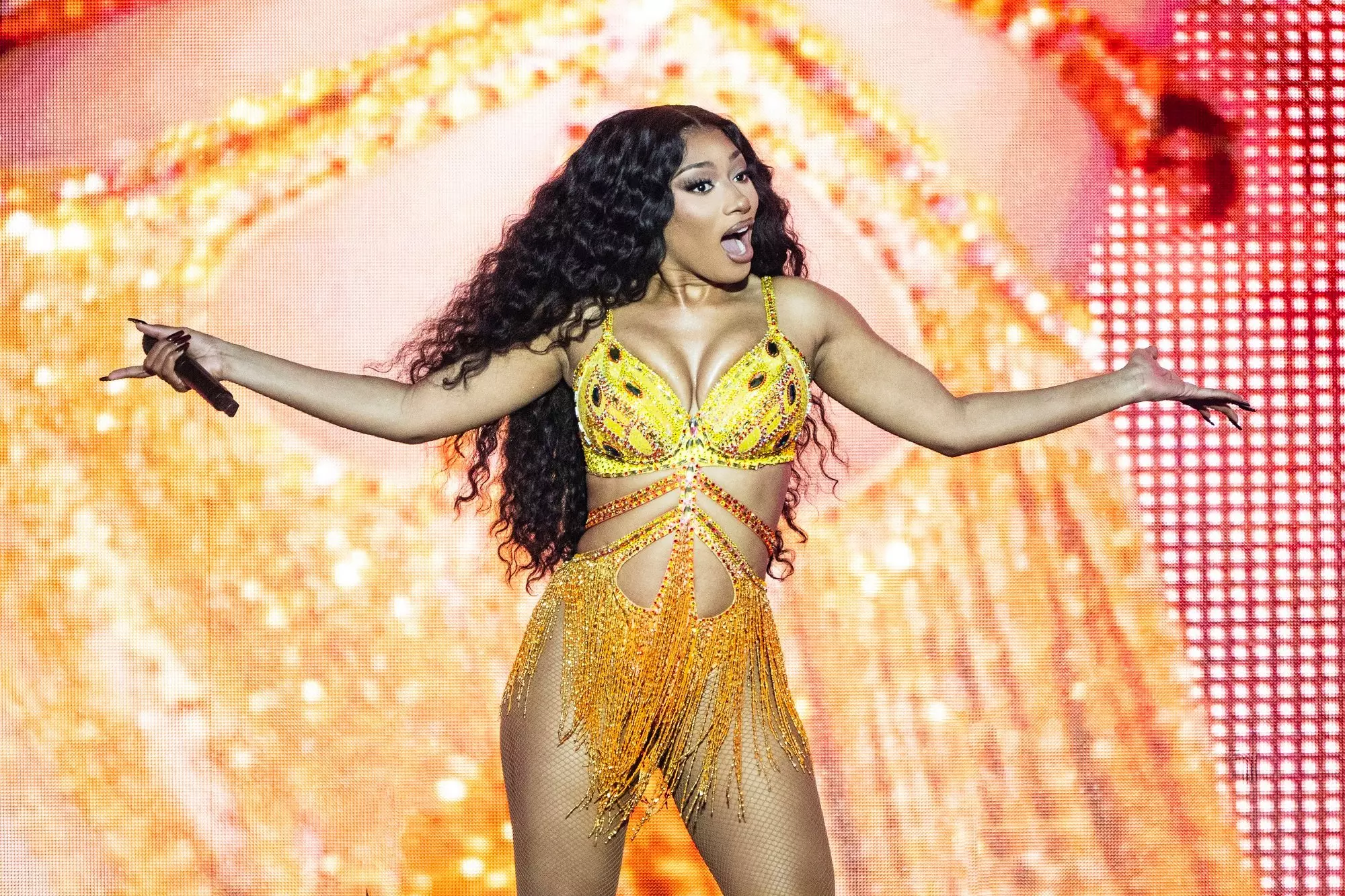
6 Takeaways From Megan Thee Stallion's 'Megan': Snakes, Shots & Self-Assurance

Celebrate 40 Years Of Def Jam With 15 Albums That Show Its Influence & Legacy
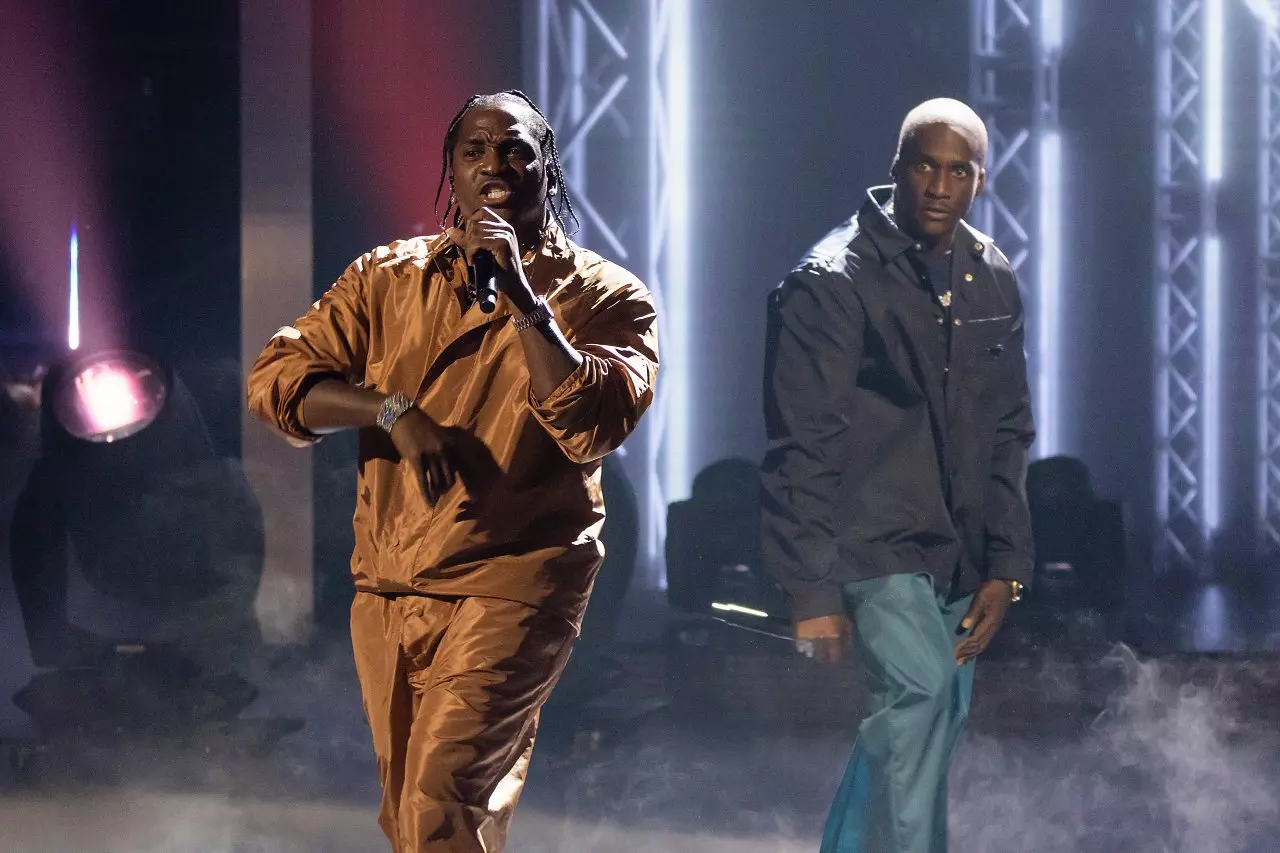
Everything We Know About Clipse's First Album In 15 Years: Pusha T And Malice Rise Again
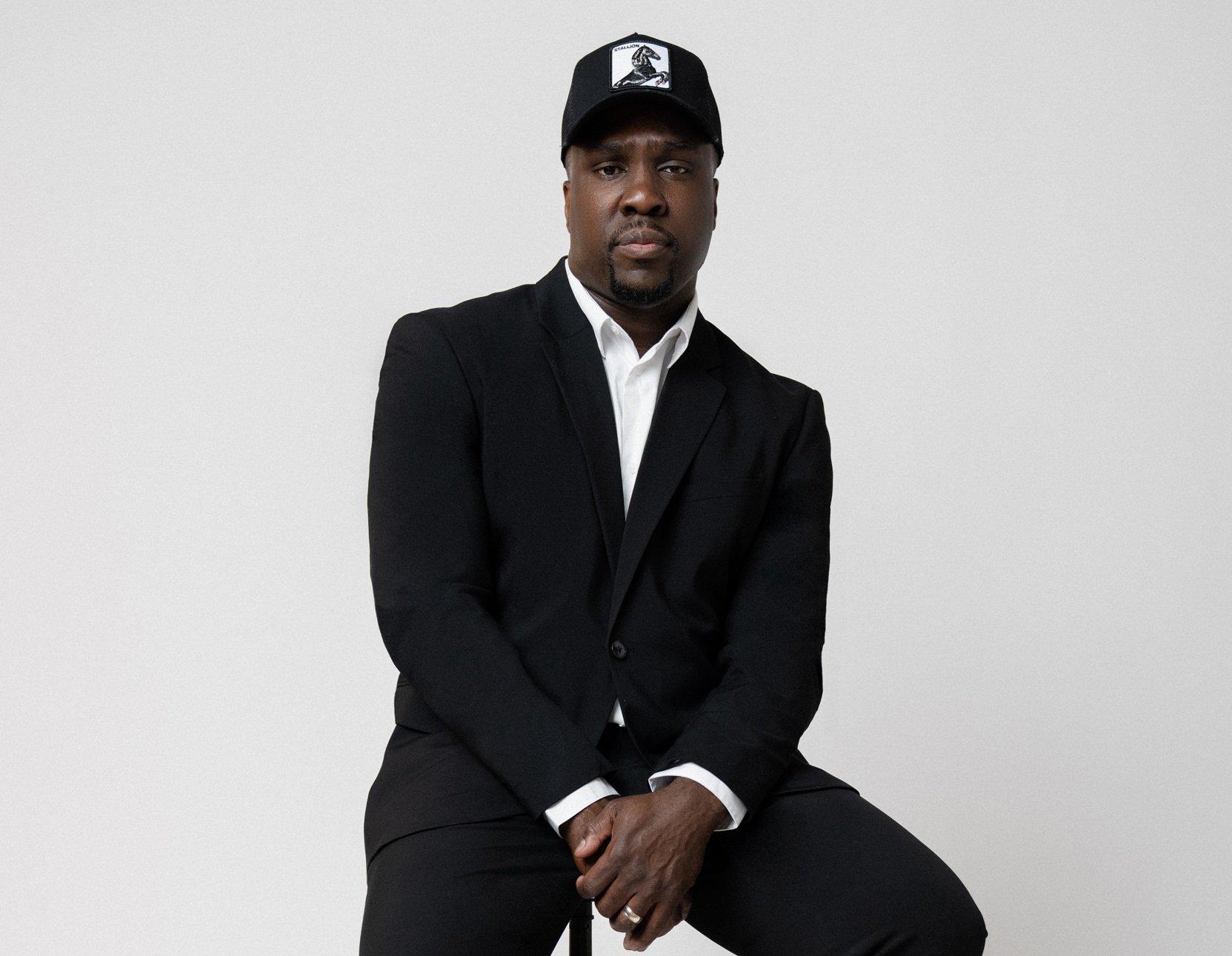
Photo: Oye Diran
interview
Meet Derrick Hodge, The Composer Orchestrating Hip-Hop's Symphony
From Nas' 'Illmatic' to modern hip-hop symphonies, Derrick Hodge seamlessly bridges the worlds of classical and hip-hop music, bringing orchestral elegance to iconic rap anthems.
Over the last 50 years, hip-hop culture has shown it can catalyze trends in fashion and music across numerous styles and genres, from streetwear to classical music. On June 30, Nas took his place at Red Rocks Amphitheater in a full tuxedo, blending the worlds of hip-hop and Black Tie once again, with the help of Derrick Hodge.
On this warm summer eve in Morrison, Colorado, Nas performed his opus, Illmatic, with Hodge conducting the Colorado Symphony Orchestra. The show marked a belated 30-year celebration of the album, originally released on April 19, 1994.
As Nas delivered his icy rhymes on classics like "N.Y. State of Mind," "Memory Lane (Sittin' in da Park)," and "Halftime," the orchestra held down the beat with a wave of Hodge's baton. The winds, strings, and percussion seamlessly transitioned from underscoring Nas's lyrics with sweeping harmonic layers to leading melodic orchestral flourishes and interludes. For the album's final track, "Ain't Hard to Tell," the orchestra expanded on Michael Jackson's "Human Nature," expertly sampled originally by producer Large Professor.
Derrick Hodge is a pivotal figure in modern music. His career spans writing and performing the famous bassline on Common's "Be," composing for Spike Lee's HBO documentary "When the Levees Broke: A Requiem in Four Acts," and his own solo career that includes his latest experimental jazz album, COLOR OF NOIZE. Hodge also made history by bringing hip-hop to the Kennedy Center with orchestra accompaniments for Illmatic to celebrate the album's 20th anniversary in 2014.
"That was the first time hip-hop was accepted in those walls," Hodge says sitting backstage at Red Rocks. It was also the first time Hodge composed orchestral accompaniments to a hip-hop album.
Since then, Hodge has composed symphonic works for other rappers including Jeezy and Common, and is set to deliver a symphonic rendition of Anderson .Paak's 2016 album, Malibu, at the Hollywood Bowl in September.
Hodge's passion for orchestral composition began when he was very young. He played upright bass by age seven and continued to practice classical composition in his spare moments while touring as a bassist with Terence Blanchard and Robert Glasper. On planes. In dressing rooms. In the van to and from the gig.
"It started as a dream. I didn't know how it was going to be realized. My only way to pursue that dream was just to do it without an opportunity in sight," Hodge says. "Who would've known that all that time people were watching? Friends were watching and word-of-mouth."
His dedication and word-of-mouth reputation eventually led Nas to entrust him with the orchestral arrangements for Illmatic. He asked Hodge and another arranger, Tim Davies, to write for the performance at the Kennedy Center.
"[Nas] didn't know much about me at all," Hodge says. "For him to trust how I was going to paint that story for an album that is very important to him and important to the culture, I have not taken that for granted."
Read more: How 'Illmatic' Defined East Coast Rap: Nas’ Landmark Debut Turns 30
Those parts Hodge wrote for the Kennedy Center are the same parts he conducted at Red Rocks. Over a decade later, he channels the same drive and hunger he had when he was practicing his compositions between gigs. "I hope that I never let go of that. I feel like these opportunities keep coming because I'm approaching each one with that conviction. Like this could be my last."
Before this latest performance, GRAMMY.com spoke with Hodge about bridging the worlds of classical and hip-hop, influencing the next generation of classical musicians, and how his experience as a bassist helps him lead an orchestra.
Throughout history, orchestral music has been celebrated by the highest echelons of society, whereas hip-hop has often been shunned by that echelon. What is it like for you to bring those two worlds together?
I love it. I've embraced the opportunity since day one. I was a young man showing up with Timberlands on and cornrows in my hair, and I knew the tendency to act and move in a certain perception was there. I knew then I have to represent hope in everything I do. I choose to this day to walk with a certain pair of blinders on because I feel like it's necessary. Because of that I never worry about how the classical world perceives me.
Oftentimes I'll stand before them and I know there may be questions but the love I show them, what I demand of them, and how I show appreciation when they take the music seriously…almost every situation has led to lifelong friendships.
I believe that's been part of my purpose. It's not even been to change minds or change perceptions. In serving the moment, even when people have preconceptions, they're in front of me playing music I wrote. How do I serve them best? How do I bring out the best in them just like I'm trying to bring out the best in the storyline of a hip-hop artist that may not relate to their story at all? The answer is just to be selfless. That's eliminated the distraction of trying to convince minds.
With that unifying principle, would you consider conducting the orchestra the same thing as playing bass with Robert Glasper?
The way I try to be selfless and serve the moment, it's no different. Maybe the skillset that's required. For example, conducting or working within a framework of composed music requires a certain way of making sure everybody's on the same page so we can get through these things on time and keep going. But I serve that moment no differently than when myself and Robert Glasper, Chris Dave, Casey Benjamin RIP, are creating a song in the moment.
I actually don't even think about how one thing is affecting the other. I will say the beauty of the bass and the bassists that have influenced me — from Ron Carter to the great Marcus Miller, Victor Wooten — is the way they can stand out while never abandoning the emotion of the moment. Remembering what is perceived as the role of the bass and how it glues things in a unique way. Harmonically and rhythmically. Being aware of the responsibility of being aware of everything.
I think that's one thing that's carried over to orchestrating and thinking about balances and how to convey emotion. I think some things are innate with bassists. We're always navigating through harmony and having a conversation through a lens of placement with drums. Placement with the diction if they're singers or rappers. There are a lot of decisions bass players are making in the moment that we don't even think about. It's just secondhand. But it's how are we serving what's necessary to make the conversation unified. I think that's one thing that's served me well in composition.
What's one song you're particularly excited to dive into for the Anderson .Paak arrangements?
So I'm intentionally not thinking in that way because we decided to treat it like a movie. Start to finish no matter what. With that in mind, I'm trying to approach it as if the whole thing is an arcing story because I didn't realize the succession of how he placed that record was really important to him.
**Hip-hop is often a very minimalist genre while an orchestra is frequently the opposite with dozens of instruments. How do you maintain that minimalist feel when writing orchestra parts for hip-hop albums like Illmatic?**
I'm so glad you asked that because that was the biggest overarching thing I had to deal with on the first one. With Nas. Because Illmatic, people love that as it is. Every little thing. It wasn't just the production. Nas's diction in between it, how he wrote it, how he told the story, and the pace he spoke through it. That's what made it. So the biggest thing is how do I honor that but also try to tell the story that honors the narrative of symphonic works? [The orchestra is] fully involved. How do I do things in a way where they are engaged without forcing them?
Illmatic was a part of my soundtrack. So I started with the song that meant the most to me at that time: "The World is Yours." That was the first piece I finished, and I emailed Pete Rock and asked "How is this feeling to you?" If the spirit of the song is speaking to him then I feel like this is something I can give to the people no matter how I feel about it. And he gave the thumbs up.
So instead of overly trying to prove a point within the flow of the lyrics, how do we pick those moments when the orchestra is exposed? Let them be fully exposed. Let them tell a story leading into that. Make what they do best marry well into what Nas and the spirit of hip-hop and hip-hop sampling do best. And then let there be a dance in between.
That first [Illmatic] show was a great experiment for me. I try to carve out moments whenever I can. Let me figure out what's a story that can combine this moment with this moment. That's become the beauty. Especially within the rap genre. To let something new that they're not familiar with lead into this story.
*Derrick Hodge conducts the Colorado Symphony Orchestra at Red Rocks* | Amanda Tipton
The orchestra is just as excited to play it as Nas is to have them behind him.
And that reflects my story. I try to dedicate more time to thinking about that, and that normally ends up reciprocated back in the way they're phrasing. In the way they're honoring the bowings. In the way they're honoring the breaths that I wrote in for them. They start to honor that in a way because they know we're coming to try and have a conversation with these orchestras. That's one thing I try to make sure no matter what. It's a conversation and that goes back to the moment as well.
I've seen other composers put an orchestral touch on hip-hop in recent years. For example, Miguel Atwood-Ferguson wrote orchestral parts to celebrate Biggie's 50th birthday. Would you say integrating an orchestra into hip-hop is becoming more popular?
It has become popular, especially in terms of catching the eyes of a lot of the different symphonies that might not have opened up their doors to that as frequently in the past. These opportunities — I appreciate the love shown where my name is mentioned in terms of the inception of things. But I approach it with a lot of gratitude because others were doing it and were willing to honor the music the same. There are many that wish they had that opportunity so I try to represent them.
With these more modern applications of orchestral music, I feel like there will be an explosion of talent within the classical realm in the next few years. Kids will think it's cool to play classical again.
The possibility of that just brings joy to me. Not just because it's a spark, but hopefully the feeling in the music they relate to. Hopefully there is something in it, aside from seeing it done, that feels that it relates to their story. I have confidence if I'm true to myself, hopefully, each time in the music it's going to feel like it's something relevant to the people. The more I can help foster platforms where people are free to be themselves, and where they can honor the music—I hope that mentality becomes infectious.
More Rap News

Denzel Curry Returns To The Mischievous South: "I've Been Trying To Do This For The Longest"

5 Rising L.A. Rappers To Know: Jayson Cash, 310babii & More

6 Takeaways From Megan Thee Stallion's 'Megan': Snakes, Shots & Self-Assurance

Celebrate 40 Years Of Def Jam With 15 Albums That Show Its Influence & Legacy

Everything We Know About Clipse's First Album In 15 Years: Pusha T And Malice Rise Again

Photo: Amy Lee
list
5 Rising L.A. Rappers To Know: Jayson Cash, 310babii & More
From San Diego to the Bay Area, Seattle and beyond, the West Coast bursts with talent. Los Angeles is at the heart of this expanse, and these five rappers are just a few who are showcasing the vibrant sounds of West Coast hip-hop.
GRAMMY winners Kendrick Lamar and Mustard have long repped their California roots. Earlier this summer, their powerhouse anthem "Not Like Us" brought West Coast rap back to its roots and shone a global spotlight on the scene.
Lamar and Mustard are at the forefront of a renaissance in West Coast rap. Their shared roots in Southern California cities — Mustard from Los Angeles and Kendrick from Compton — adds authenticity and resonance to their partnership. Their undeniable chemistry was on display in the video for "Not Like Us," which received a million views less than an hour after its release.
Mustard's signature beats and Lamar's profound lyricism has resurfaced the sound and culture that makes West Coast rap so unique and paved the way for a new generation of artists. All signs suggest that another impactful collaboration may appear on Mustard's upcoming album, Faith of A Mustard Seed.
Learn more: A Guide To Southern California Hip-Hop: Definitive Releases, Artists & Subgenres From L.A. & Beyond
Kendrick Lamar headlined the electrifying Pop Out concert on Juneteenth, which also featured sets from Mustard and DJ Hed. The event saw a handful of L.A. rappers, opening for Lamar in a showcase of the vibrant talent that defines the region's rap scene.
The West Coast is a vast reservoir of talent, stretching from the Bay Area to Seattle. At the heart of this creative expanse is Los Angeles, which brings fresh perspectives, innovative styles, and renewed energy to hip-hop, ensuring the genre thrives. With the stage set for these newcomers to shine, it's the perfect time to take a closer look at some of the rising talents poised to impact the rap scene. While this list only scratches the surface, it offers a glimpse into the diverse and exciting talent from SoCal, the epicenter of the West.
Blxst
Arising from Los Angeles, Blxst initially played the background as a producer but soon demonstrated his ability to excel across all facets of music creation. Blxst's breakout moment came with his platinum-certified single "Chosen," which solidified his place in the music industry. His collaboration on Kendrick Lamar's "Die Hard" from Mr. Morale And The Big Steppers further showcased his skill for crafting hooks that elevate tracks, resulting in two GRAMMY nominations.
As he prepares to release his debut album, I'll Always Come Find You on July 19, Blxst stands at a pivotal point in his career. With a great resume already to his name, his forthcoming album promises to showcase his undeniable talent and leave a lasting impact on the West Coast music scene.
Bino Rideaux
Bino Rideaux is a South Central native and frequent collaborator with the GRAMMY-winning rapper Nipsey Hussle. He is the only artist to have a joint project with Hussle, No Pressure, released before the prolific rapper's untimely death. Rideaux has hinted at having a treasure of unreleased music with Hussle, saved for the perfect moment and album.
Rideaux is known for creating tracks that get the city outside and dancing. He has made three beloved projects with Blxst, titled Sixtape, Sixtape 2, and Sixtape 3 resulting in sold-out shows and a special place in West Coast Rap fans' hearts. Endorsed by industry heavyweights like Young Thug, Rideaux continues to carve his path at his own pace. His journey is nothing short of a marathon, echoing the enduring legacy of his mentor.
Kalan.FrFr
Kalan.FrFr, whose name stands for "For Real For Real," is an artist whose music is as genuine as his name suggests. Growing up in Compton and Carson, Kalan.FrFr has always stayed true to his roots, and exudes the unyielding confidence essential to making it in the City of Angels.
His breakthrough mixtape, TwoFr, showcased his ability to shine without major features, delivering verses with catchy hooks and melodic rap. He's shown he's not confined to one sound, delivering vulnerable tracks like "Going Through Things'' and "Never Lose You." His EP Make the West Great Again, Kalan.FrFr both proves his loyalty to his origins and highlights his versatility. Kalan.FrFr's signature punch-in, no-writing-lyrics-down style keeps his fans on their toes, ensuring that whatever comes next is unpredictable but authentic.
Jayson Cash
Jayson Cash, a rapper hailing from Carson — the same city as TDE artist Ab-Soul — stays true to West Coast rap, from his lyrics to his beat selection. Listening to Jayson Cash's music is like diving into a vivid life narrative. His prowess as a lyricist and storyteller shines through in every verse. He gives his fans an insight into his journey, making it a relatable music experience.
Cash made waves with his debut mixtape, Read The Room, and scored a Mustard beat on the song "Top Down." Two years later, their collaboration continues, with Cash writing on Mustard's upcoming album. Though often seen as an underdog, Cash is not to be underestimated, earning cosigns from West Coast legends like Suga Free and Snoop Dogg. His latest project, Alright Bet, includes a notable feature from Dom Kennedy.
310babii
310babii has achieved platinum-selling status at just 18 years old, while successfully graduating high school. Yet 310babii's career began in seventh grade, when he recording songs on his phone showing early signs of motivation and creativity. His 2023 breakout hit "Soak City (Do It)" quickly gained traction on TikTok — and caught the ears of Travis Scott and NFL player CJ Stroud.
As the song grew in popularity, it led to a remix produced by Mustard, who invited the Inglewood native to join him onstage during his set at The Pop Out. 310babii's innovative spirit shines through in his distinctive visuals, exemplified by the captivating video for his song "Back It Up." His recent debut album, Nights and Weekends, released in February, underscores his evolving talent and promise within the music industry.
Latest News & Exclusive Videos

Meet Amy Allen, The Hitmaking Singer/Songwriter Behind Sabrina Carpenter's "Please Please Please" & More Pop Gems
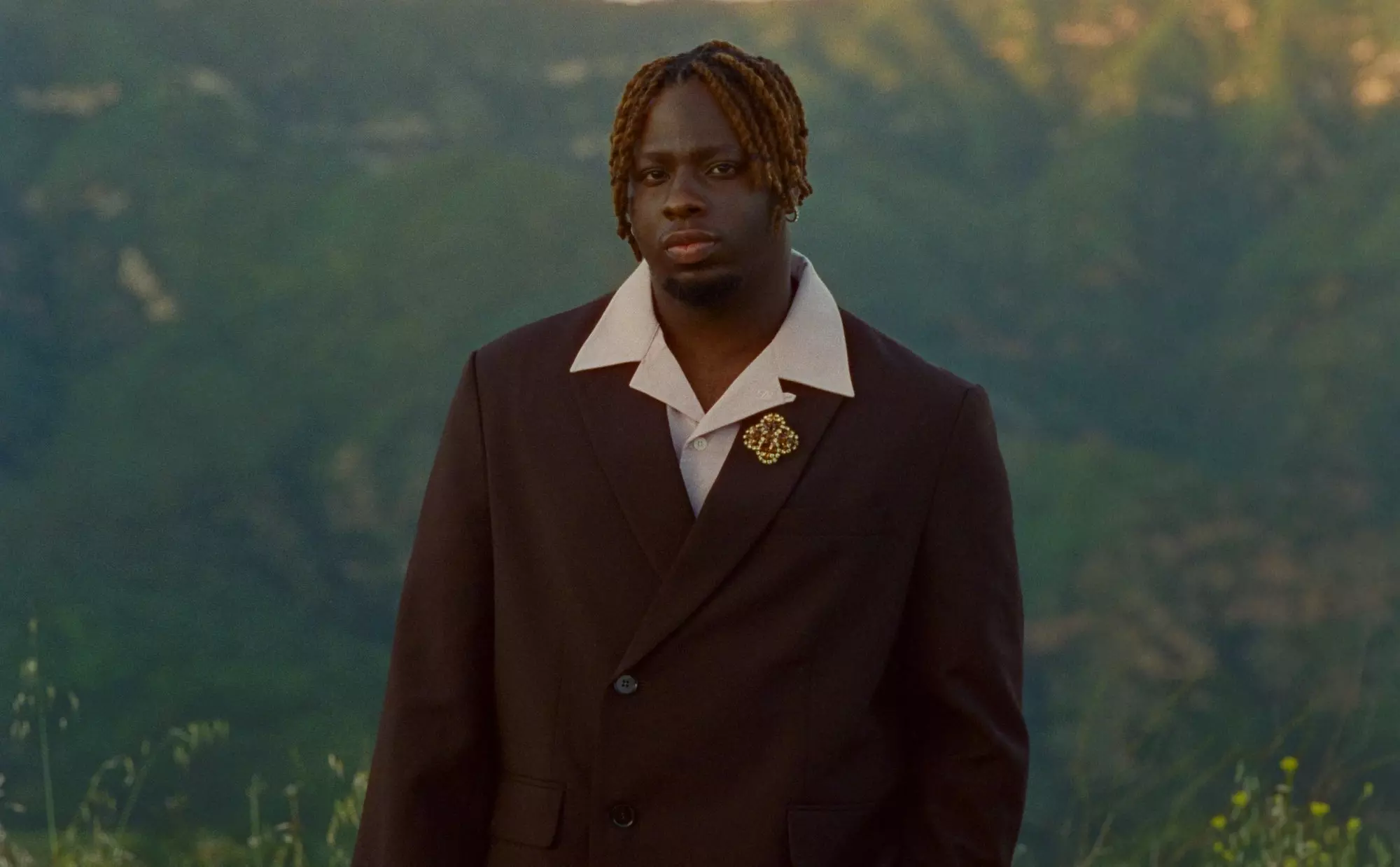
BLK ODYSSY Becomes A Human Instrument On '1-800 FANTASY'
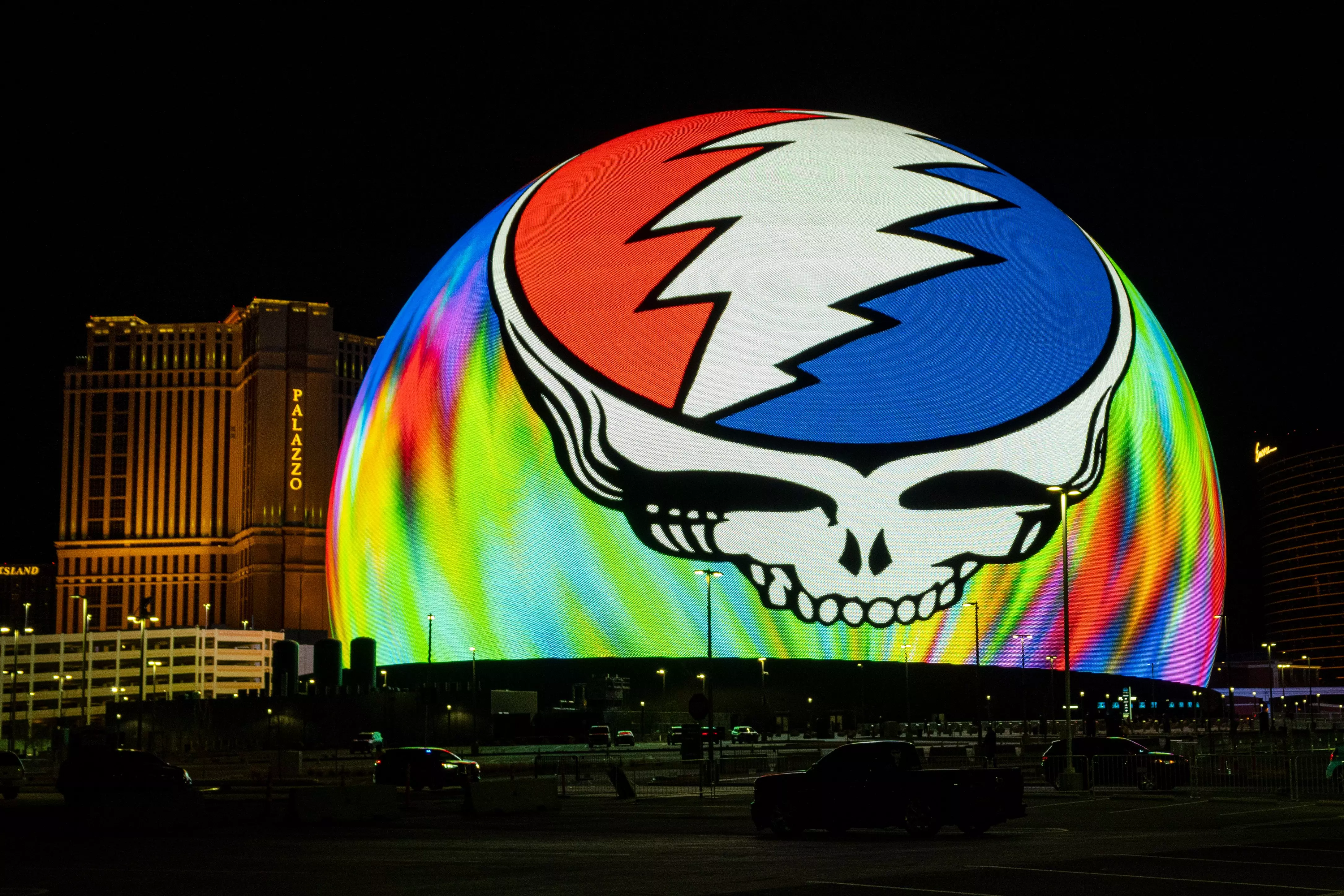
Why Dead & Company's Sphere Residency Is The Ultimate Trip
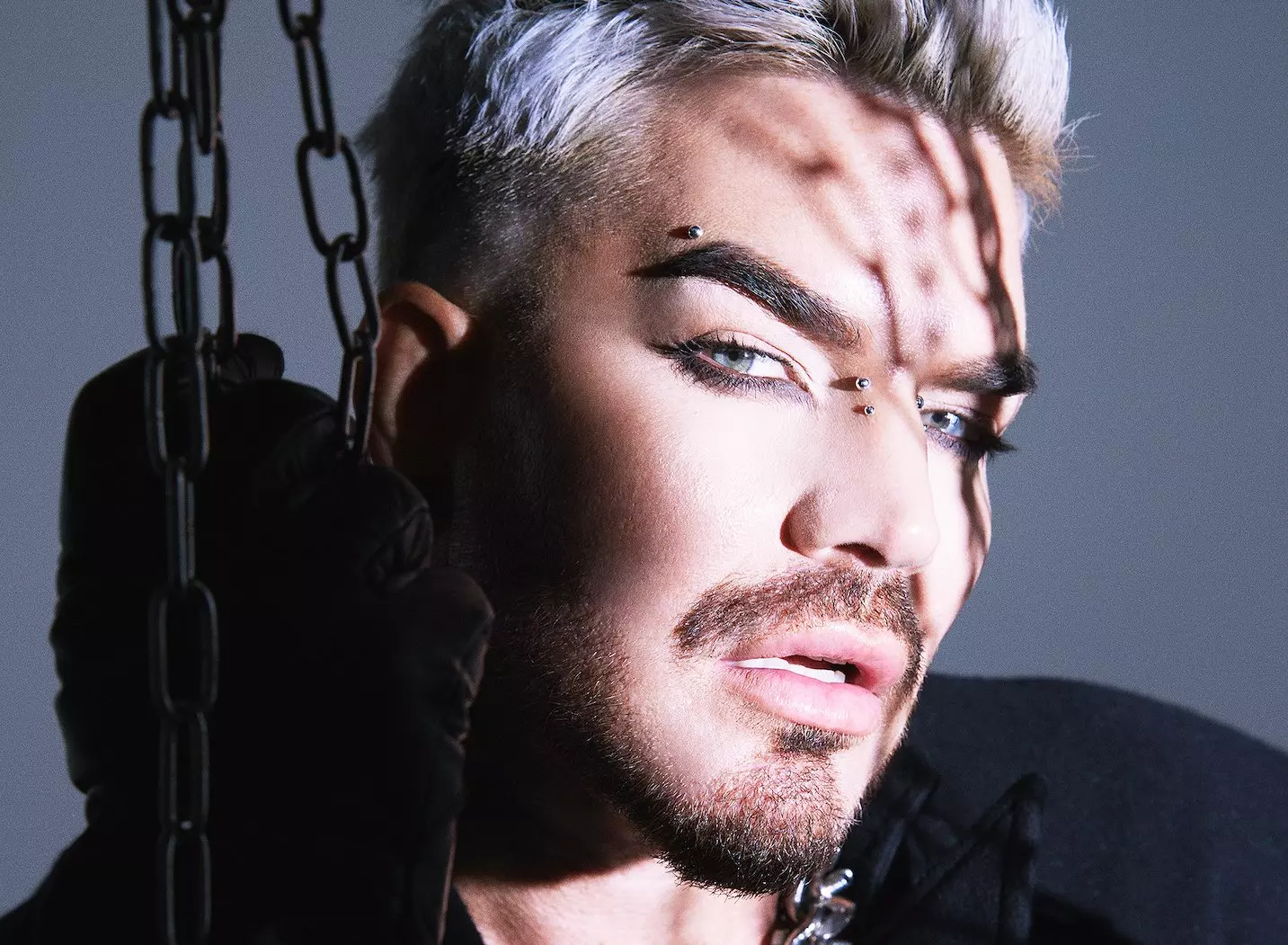
Inside Adam Lambert's 'Afters': How '90s House, Clubbing & Lots Of Sex Inspired His Most "Liberated" Music Yet
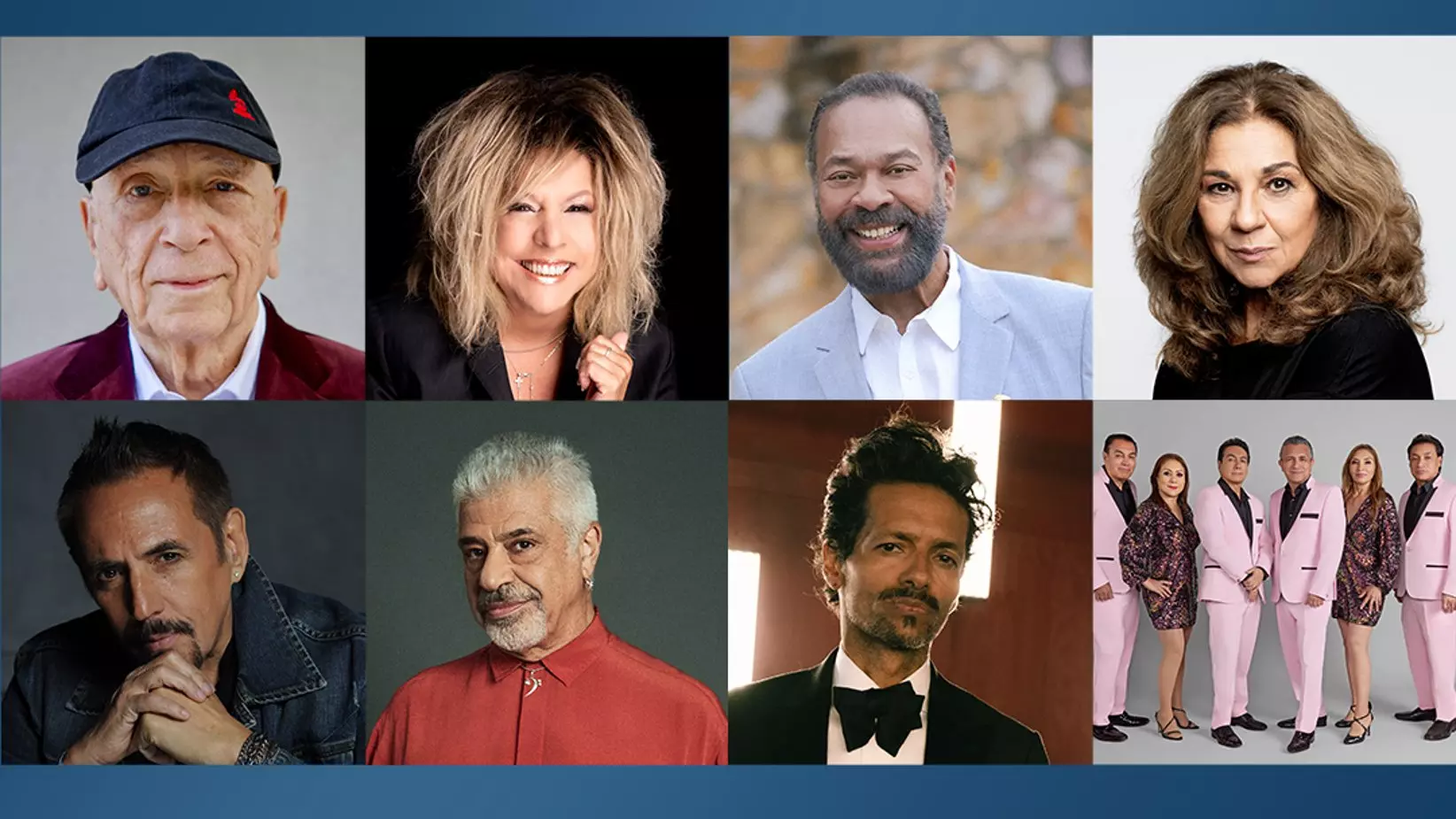
The Latin Recording Academy Announces 2024 Special Awards Recipients: Los Ángeles Azules, Draco Rosa, Albita, Lolita Flores & More
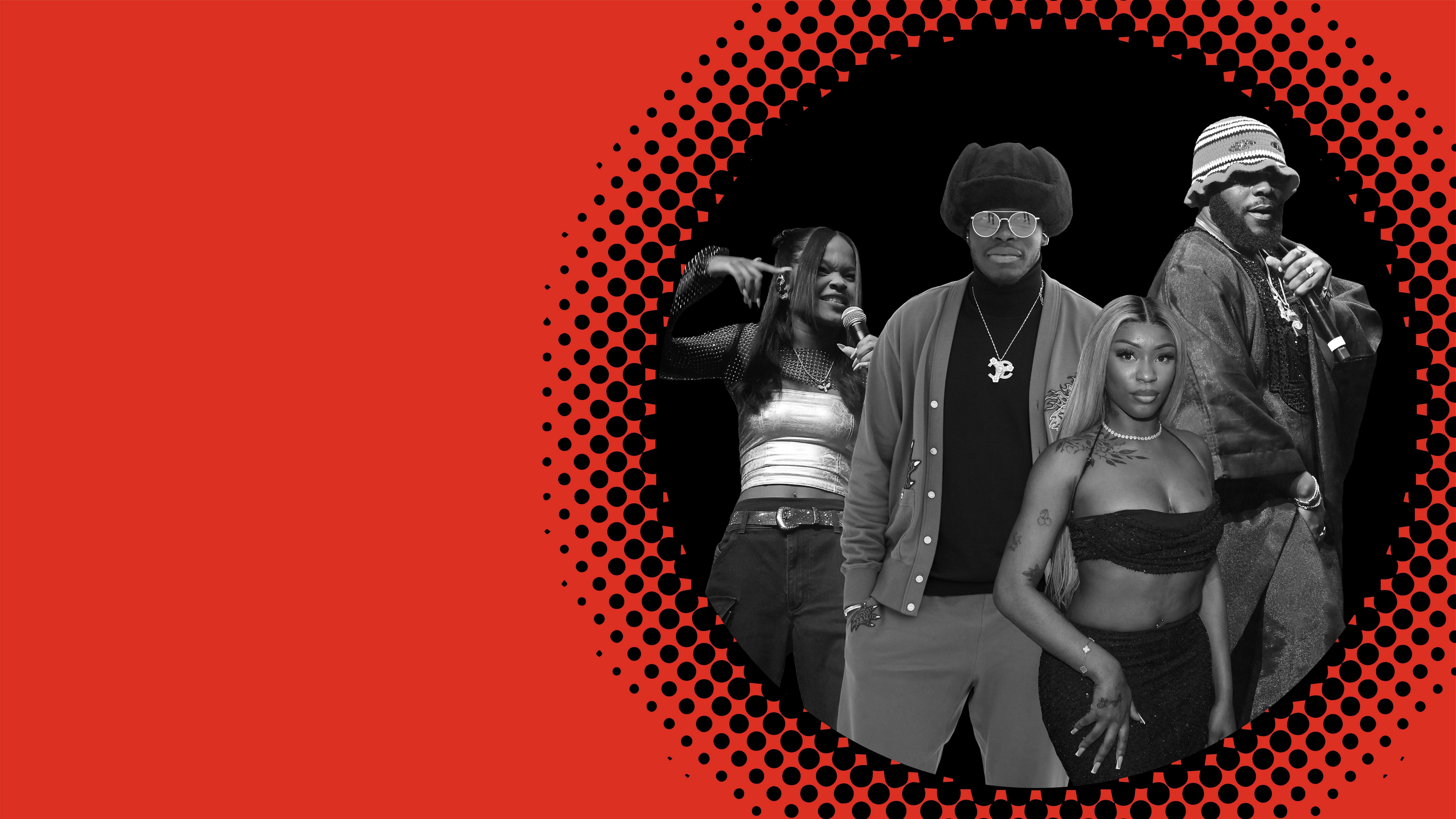
Photos: Taylor Hill/Getty Images; Stephane Cardinale - Corbis/Corbis via Getty Images; Dave Benett/Getty Images for The Standard London; Paras Griffin/Getty Images
list
10 Artists Changing The Face Of Drill: Ivorian Doll, Bobby Tootact & More
While Cash Cobain and Ice Spice bring drill music even further into the mainstream, a new generation of artists are evolving the sound of the genre. From S.Pri Noir and 163Margs, to Lismar and Jay Hound, these 10 acts should be added to your playlist.
Originating in the early 2010s on the southside of Chicago, the hip-hop subgenre drill has transcended borders to become a global phenomenon.
Characterized by a menacing and dark energy, drill music sets itself apart from traditional rap and hip-hop through its violent, aggressive lyrics and undertones. Drill music incorporates slower, heavier beats that often blend distorted 808 basslines, dark synths, and trap-style hi-hats.
The gritty, lawless sound, pioneered by artists like King Louie, Chief Keef, G Herbo and GRAMMY-award winner Lil Durk, remains at the core of the drill. Their influence is spreading to more mainstream acts like Cash Cobain — whose melodic, sultry "Attitude" exemplifies sample drill and landed him at No. 25 on Billboard's Hot Rap Songs — and Ice Spice, whose bold and perky lyrics contrast drill beats. As a whole, these artists are proving that drill is more than just graphic and horrid lyrical stories; it can be fun and even make you feel like a baddie.
Variations on drill music can be heard in regions such as South America, Africa, and Europe. The controversial but incredibly popular UK drill, which was born in the south London neighborhood of Brixton, draws many aesthetic influences from Chicago drill while maintaining its own stylistic differences. Where Chicago drill is heavily influenced by trap music, UK drill can be seen as a type of British gangsta rap, or "road rap." Young UK artists like Digga D and Central Cee have taken over the genre, both scoring entries on the Billboard chart, and with Central landing features with Drake and Lil Baby.
A new generation of drill rappers are continuing to evolve the sound of the genre by combining drill beats and lyrics with a wide range of influences. Read on to learn about 10 budding drill artists whose innovative sounds and diverse perspectives are evolving the global drill landscape.
Explore More: Drill Music Is On The Rise Around The World. Can Latin Drill Take Over Next?
Kenzo B
When it comes to vocal adaptability, attention to detail, and charisma — Kenzo B has got it. The Bronx-born rapper has quickly risen in prominence in New York's drill music scene following 2022 singles "Bump It" and "The Realest," both of which showcased her raw energy and talent.
The self-proclaimed "Queen of Bronx drill" continues to refine her rapid-fire rhymes while maintaining a fierce competitiveness, setting her apart in the male-dominated drill space. In April, Kenzo B teamed up with Harlem rapper Bianca Bonnie to drop their ultra-femme anthem "What You Talkin Bout?"
Wolfacejoeyy
Known for his sexy drill singalongs, Wolfacejoeyy is one of the most exciting rising rappers from NYC’s "forgotten borough," Staten Island. The 21-year-old seamlessly weaves hooky, charismatic rhymes into signature Staten-style instrumentals. On songs like the viral "cake" and "wya," Joeyy taps into an alter ego that teeters between hopeless romantic and relentless f—boy, backed with dynamic hats and a heavy bass.
His highly-anticipated 13-track debut album Valentino, dropped last month and includes a feature from R&B singer Reuben Aziz and production from "Power" actor Michael Rainey Jr., who raps as WhereIs22.
S.Pri Noir
Born to a Senegalese mother and father from Guinea-Bissau, S.Pri Noir is based in France. Despite rapping in French, hip-hop artist S.Pri Noir's music is slowly transcending borders — grabbing the attention of audiences worldwide.
S.Pri Noir’s 2018 debut album Masque Blanc reached No. 18 on the Top Albums chart in France. Earlier this month, he delivered a thrilling freestyle on "On The Radar Radio," channeling his inner Cash Cobain. After a recent Instagram post, fans are speculating a potential collaboration between the two artists will drop soon.
S.Pri Noir represents the next big market in drill: Africa. Many budding artists in the genre, especially from Europe, are second or third-generation African immigrants.
Ivorian Doll
German British rapper Ivorian Doll is making a name for herself in the UK drill scene. Boldly claiming the title "Queen of Drill," she's carving out a unique niche with explosive lyrics, drill-infused tension, and undeniable pop appeal. Each of her anthems is a potent cocktail of drama and attitude, highlighting her razor-sharp signature style that's firmly anchored in unfiltered, hard-hitting lyricism.
The 26-year-old rapper debuted in 2018 as part of a duo, dropping the infectious drill track "The Situation." Since embarking on her solo journey, she's continued to captivate audiences with standout releases like "Queen of Drill," "Daily Duppy" and the buzz-worthy song "Rumour." Her ascent in the drill scene exemplifies a fresh voice bringing new energy to the genre, blending cultural influences with raw talent and unapologetic star quality.
Bobby Tootact
Harlem rapper Bobby Tootact is known for remixing popular Afro-Caribbean songs — from Afrobeats bangers such as Wizkid’s "Joro" to dancehall like Teejay’s "Drift" — into drill tracks with overtly rough lyrics. On 2023's "Real Facts" (produced by go-to mixer Lowkeymali), Bobby raps about gun violence while sampling Wizkid’s popular Afrobeats dance track "Ojuelegba."
As the child of Senegalese immigrants, Bobby's music reflects a fusion of his cultural heritage and his upbringing in Harlem. This combination allows him to create a distinctive musical identity that resonates with fans of multiple genres while merging two completely different musical worlds.
163Margs
Blending gritty lyrics with infectious beats, Nottingham's very own 163Margs has struck a chord with listeners craving traditional UK drill music from a young artist. Margs, who debuted in 2023, has already collaborated with UK heavyweights like Digga D, Bandokay, and Blanco. His debut single "Hide and Seek" propelled him into the spotlight, showcasing his raw talent and captivating flow.
At first listen, his 2024 single, "Barbies" can be confused as an ode to beautiful women, with lyrics like: "All of them Barbie pretty." Listeners later realize the song is actually about guns and street life. "The opps are wet and there's no disagreement / Ayy / fill up the wap / put teeth in."
Odumodublvck
Nigerian rapper and singer Odumodublvck is crafting a lane for himself with an alluring Afro-grime and Afro-drill sound. As a member of the hip-hop collective Anti World Gangstars, Odumodublvck creates high-energy music which features catchy, repetitive lyrics in Pidgin English and his Native Nigerian language (Igbo).
His latest project, EZIOKWU, dropped in October 2023 and includes collaborations with acclaimed artists like Fireboy DML, Wale, and Amaarae — further cementing his position as a rising star in the evolving Nigerian music landscape.
Jay Hound
Jay Hound is an upcoming drill artist hailing from a section of Manhattan's Upper West Side neighborhood and catapulted into the spotlight via his 2023 single "UKRAINE."
A collaboration with his Sweepers labelmate Jay5ive, the track features deep and vibrating bass, and garnered over seven million views on YouTube and nearly 30 million streams on Spotify. He even released an Afro-drill version of the song, which deconstructs the grittiness of the original drill track for a more light and playful dance sound.
Lismar
Dominican singer/songwriter Lismar is dominating the Dominican urban music scene with her contemporary hip-hop and drill rap. Gaining recognition on the Puerto Rican platform Freestyle Mania, Lismar's creativity and distinctive sound of which infuses both Latin and hip-hop music has earned her a growing fan base and a deal with Roc Nation.
In her new released tracks "Delincuente Con Traje" and "BZRP Music Session #60," she captivates listeners with her powerful flow and impactful lyrics that translate to "I look calm / but I was raised on the corner" and "If they close the door / I knock down the window." The rapper dropped her latest single "Mi Primer Concierto," a softer record that seamlessly integrates her Dominican heritage with rap.
Dee Billz
New York-based rapper, Dee Billz, combines bold and unapologetic lyrics while also toying with a Jersey club sound in his 2023 breakout hit "Thootie." The single took the internet by storm and racked up more than a million views across TikTok and YouTube.
Last year, the drill artist collaborated with fellow New Yorker rapper’s Kyle Richh, Jenn Carter, and Tata to release "Stomp Stomp," a single that reimagines Soulja Boy's "Crank That" in a drill style.
Latest Rap News & Music

Denzel Curry Returns To The Mischievous South: "I've Been Trying To Do This For The Longest"

5 Rising L.A. Rappers To Know: Jayson Cash, 310babii & More

6 Takeaways From Megan Thee Stallion's 'Megan': Snakes, Shots & Self-Assurance

Celebrate 40 Years Of Def Jam With 15 Albums That Show Its Influence & Legacy

Everything We Know About Clipse's First Album In 15 Years: Pusha T And Malice Rise Again
